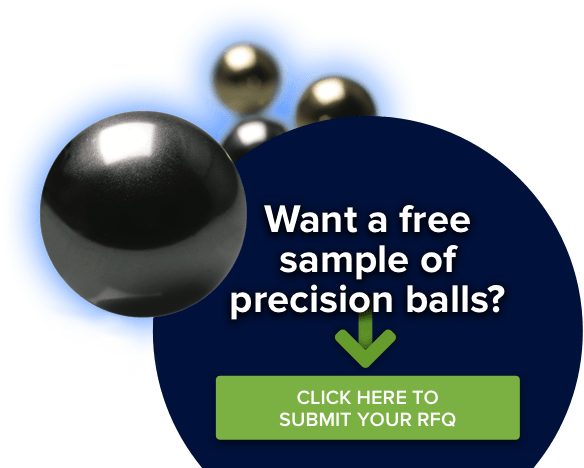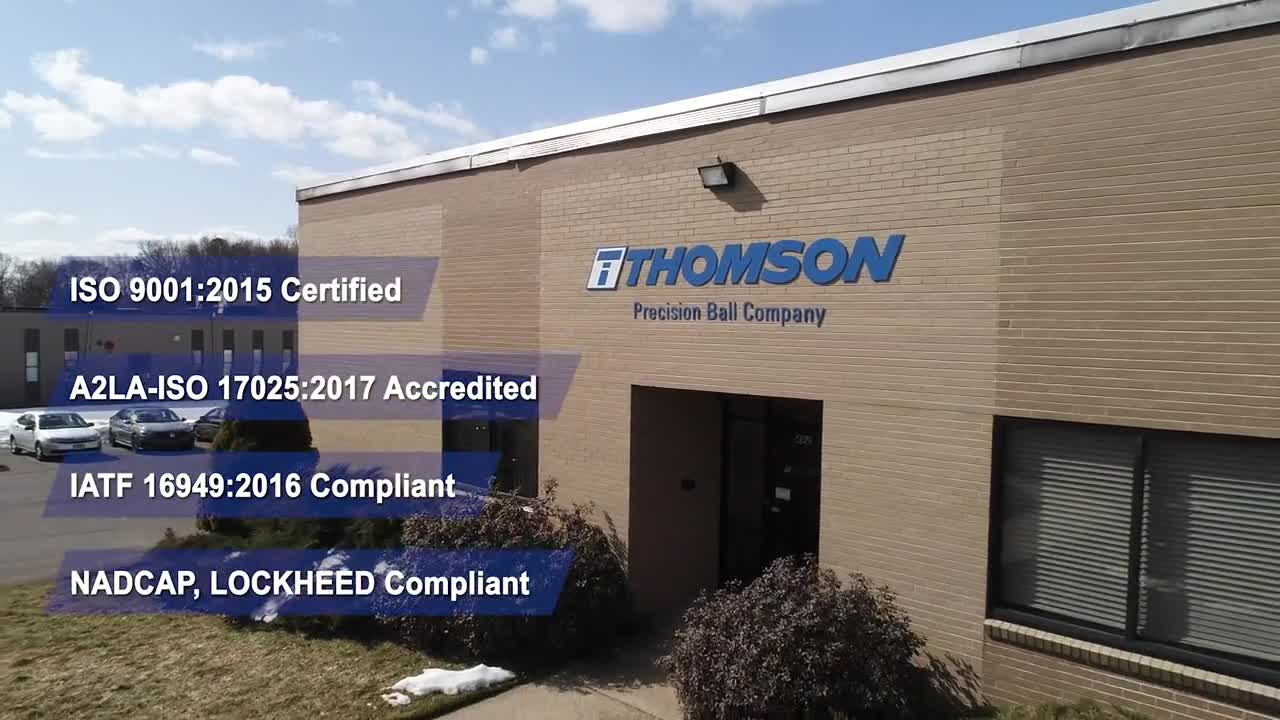Choose Your Login Account
Thomson currently has two account systems - one for the website and CAD model downloads, and one for e-commerce. We understand that two logins is an inconvenience and are working to consolidate our systems into one login process. Until we’re able to consolidate the two logins, please follow these guidelines:
- Download CAD models
- Save and retrieve projects in LinearMotioneering® and MicronMotioneering® tools
- Access Distributor Extranet and all related resources
- Order directly from Thomson online (North America only)
- Authorized Thomson Distributors can view and order from quotes online (Global)
- View the shopping cart and look up prior direct orders
Customer Service Chat (ONLINE) Customer Service Chat (OFFLINE)

Precision Balls
An industry standard for more than 70 years, Thomson proudly serves precision industries with specialty and production runs of standard and non-standard balls. At our A2LA accredited calibration laboratory, our precision balls are made with pride and ideal for bearings, ball screws and many more applications.

Thomson Precision Balls
Made with pride, backed by accreditations:
- Registered to ISO 9001:2015
- Accredited Lab to ISO 17025 by A2LA, for measurement of size, sphericity, and surface finish
- Statistical uncertainty of 0.000066”, 3rd party verified
Manufacturing Capabilities
- Since 1946, our US based manufacturing facility has been specializing in producing a variety of unique sizes
- We globally source our materials to meet any customer specifications including DFARS
- Our Kanban inventory, lean manufacturing, and flexibility reduces our lead time to meet your demands
Holding ourselves to the higher standard:
- Our 52100 series fully meets AMS 6440
- Our 440C Stainless Steel fully meets AMS 5630 and AMS 2700
- We provide raw material certs and a Certificate of Conformance with all shipments at no charge
NEWS:- You Should Know-
440C DFARS Readily Available- 1/16”, 3/32”, 1/8”, 5/32”, 3/16”, 1/4”, 5/16”, 11/32”, 3/8”
Meets DFARS 7009/7014, AMS 5880, AMS 5630, QQ-S-763, ASTM A276, AMS 2759, ASTM F2215, HRC 58-62, AMS 2700, NADCAP Heat Treat
NADCAP Passivation, Retained Austenite Available
Thomson Precision Ball Co. Overview
Step inside Thomson Precision Ball Company and see how its ISO 9001:2015-certified facility, A2LA-accredited laboratory and experienced employees have helped it become a trusted precision ball manufacturer for 75 years and counting.

Pioneer Steel Ball was founded in 1946 in Unionville, Connecticut by five men who had extensive experience in the steel ball industry. The idea to form the company took root several years earlier, but since the founders did not want to jeopardize the war effort in any way, they waited until the war had ended. In the forties and fifties, Pioneer, produced carbon steel balls for bearings and the automotive industry. In addition, the company manufactured a variety of steel sizes and shapes for the burnishing industry. Pioneer’s growth outpaced their capital and in the early ‘50s they sold the company to Pittsburg Steel with the option to repurchase it at a later date. Unfortunately, they bought back the company a few months before the devastating hurricane and flood of 1955. Located on the banks of the Farmington River, the company took a direct hit and was destroyed. However, it was rebuilt by two of the former five partners who later expanded the product lines to include High Carbon Chrome SAE 52100 as well as a full line of stainless steel types: 440C, 302, 316. The partners also added lapping machines to produce tighter tolerances and improved surface finish. One of their greatest accomplishments was to develop the 36” flashing machine, the largest at that time. This accomplishment was the result of their combined expertise which had been acquired over sixty years in the steel ball business. Pioneer’s innovative leadership continued with the development of extremely strong hollow stainless steel 440 balls for the air cargo industry. They also developed a special stainless steel type 431 gold- plated with extremely high tolerance for the automobile air bag deployment mechanism.
A second company in the industry, ABEK, had been founded in 1976 by two people with 20 years of miniature ball- making experience. Unlike Pioneer, which specialized in small to large balls, ABEK specialized in miniature balls that were 1/16 of an inch in diameter or smaller. With its expertise in this area, ABEK was able to manufacture high precision balls as small as .012 inches and became a leader in this field.
It was this expertise, combined with Thomson Industries determination to have a USA supplier of high quality, that had led it to purchase ABEK in 1982. Once the purchase was finalized, approximately 14% of ABEK’s sales were to Thomson divisions. At that time, ABEK manufactured the miniature and small balls sizes, and purchased the larger sizes from Pioneer, which it then sold to Thomson. ABEK, was combined with Pioneer in 1988 to form Thomson Precision Ball. This enabled Thomson Industries to satisfy all of its’ ball requirements. Approximately 14% of Thomson Precision Ball capacity is still dedicated to Thomson Industries.
Brochures
Catalogs
| Precision Balls | 2619 KB |
To provide better service to you on our websites, we and our service providers use cookies to collect your personal data when you browse. For information about our use of cookies and how to decline them or turn them off please read our cookie policy [available here].
